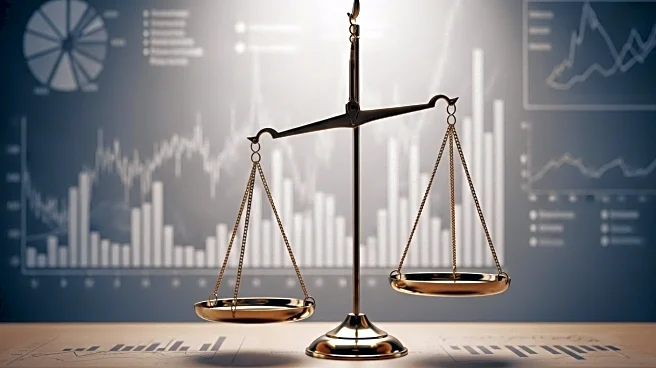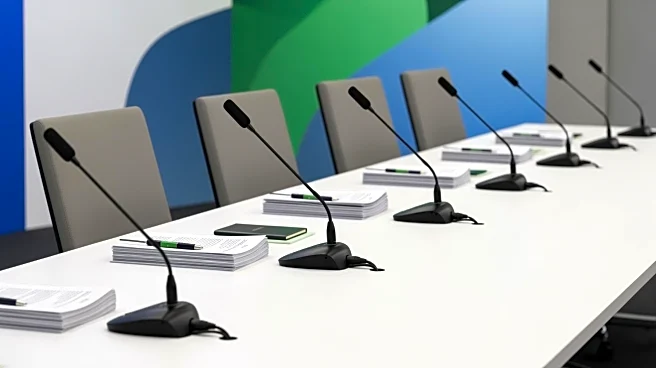What is the story about?
What's Happening?
President Trump faces a significant legal setback as a federal appeals court has ruled that the majority of his tariffs were unlawfully imposed. The court affirmed a previous decision by the Court of International Trade, stating that Trump's use of the 1977 International Emergency Economic Powers Act to declare an 'economic emergency' and implement tariffs without congressional approval violated legal norms. Despite the ruling, the tariffs remain in effect, and Trump plans to appeal to the Supreme Court. The tariffs have been a tool for Trump to negotiate trade agreements with entities like the European Union and Japan, claiming they have generated substantial revenue for the U.S. Treasury. However, critics, including Nobel laureate Paul Krugman, have labeled the situation a 'self-inflicted disaster,' highlighting the contradiction in declaring an economic emergency while asserting economic robustness.
Why It's Important?
The court's decision has significant implications for U.S. trade policy and economic stability. If the tariffs are ultimately struck down, the U.S. may face the challenge of refunding billions of dollars already collected, potentially impacting federal revenues. The tariffs have been a contentious aspect of Trump's economic strategy, affecting global markets and diplomatic relations. The ruling limits Trump's authority to impose tariffs unilaterally, which could protect American businesses and consumers from destabilization. The Justice Department has warned that removing the tariffs could lead to 'financial ruin,' underscoring the stakes involved. Trump's determination to appeal the decision reflects the broader debate over trade practices and economic policy.
What's Next?
The ruling is set to take effect on October 14, and the Trump administration is expected to appeal the decision, indicating ongoing legal battles over the tariffs. The Supreme Court's potential involvement could further shape the future of U.S. trade policy. Trump has expressed his intention to leverage the court's support to 'Make America Rich, Strong, and Powerful Again,' emphasizing the importance of tariffs in supporting American workers and manufacturers. The outcome of the appeal could have lasting effects on U.S. economic strategy and international trade relations.
Beyond the Headlines
The legal challenge to Trump's tariffs highlights broader issues of executive power and trade policy. The use of emergency powers to impose tariffs without congressional approval raises questions about the balance of power between the executive and legislative branches. The situation also underscores the complexities of global trade negotiations and the impact of unilateral actions on international relations. As the legal battle unfolds, stakeholders will be closely watching the implications for U.S. economic policy and the precedent it sets for future administrations.














